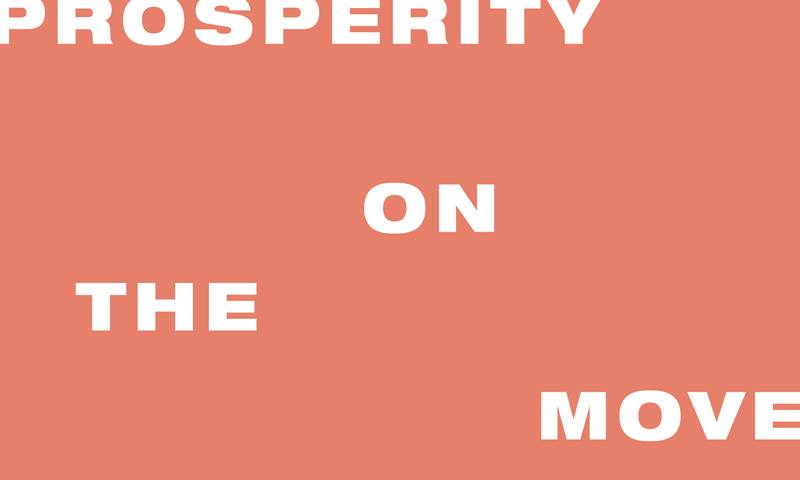The challenge of mass displacement requires a new vision of prosperity. To develop such a vision and deliver positive results, universities must work with a range of groups in the countries affected.

Essay 01: Hannah Sender and Nikolay Mintchev
Institute for Global Prosperity
Large-scale displacement is one of today’s greatest challenges to global prosperity. While media attention in Europe and North America has largely focused on the arrival of refugees in Europe, what is often overlooked is that the majority of refugees – 86% – are living in low-and-middle-income countries.
The UNHCR estimates that there are 65 million forcibly displaced people worldwide, including 40.8 million people who are displaced within their own countries. This may not seem like a large number in the context of a global population that exceeds seven billion, but we must remember that the majority of displaced people are concentrated in and around a small number of conflict zones, most notably Syria, Afghanistan and Somalia. The countries that host the most refugees are thus the ones that border these conflict zones: Turkey, Pakistan, Lebanon, Iran, Ethiopia, Jordan and Kenya. The high concentration of refugees in a few recipient countries puts enormous pressures on local resources but also has economic, social, and political repercussions that spread to other parts of the world.
The ESRC-funded RELIEF Centre aims to understand what sustainable prosperity looks like in the context of large-scale displacement. Led by Professor Henrietta Moore, Director of the UCL Institute for Global Prosperity, the RELIEF Centre is a partnership between UCL, the American University of Beirut and the Centre for Lebanese Studies. Narrowing its focus to Lebanon – the country with the highest number of refugees per capita in the world – the Centre will deliver a programme of research and education to improve the prosperity of local urban environments, as well as the host and refugee communities that live in them.
Lebanon is inhabited by around 1.5 million refugees, over a million of whom are Syrians fleeing a conflict that has been ongoing since 2011. For a country as small as Lebanon, with a population of only six million, this influx of people poses a number of challenges. It puts a strain on resources, public services and jobs, and it creates social tensions and hostility between hosts and refugees. The fact that the conflict in Syria has now lasted for more than six years also raises concerns about disruptions to refugees’ education, training, and working lives, which will have significant consequences for the reconstruction of Syria when the conflict ends.
“Prosperity is about more than just economic wealth; it also includes skills and knowledge, wellbeing, social capital and capacity for entrepreneurship”
The RELIEF Centre aims to address these challenges of displacement through the theoretical lens of prosperity. Its starting premise is that, although the challenges in question are linked to insufficient funding for services and slow economic growth, solutions to them must not be narrowly focused on economic growth alone. Prosperity is about more than just economic wealth; it also includes non-monetary forms of value such as skills and knowledge, wellbeing, social capital and capacity for entrepreneurship, all of which are key for improving people's quality of life.
The Centre’s research will identify the ways in which such values are already embedded in communities in Lebanon, as well as the most efficacious ways in which universities can support them to boost local and national levels of prosperity. It will train and work with researchers from local communities, who will be members of the RELIEF team, taking part in research planning, collecting data, disseminating findings and implementing impact activities. The findings of the research will inform the development of an educational programme that includes both online learning and face-to-face interaction to support the educational needs of local communities.
Crucially, this work in research and education, like any initiative that promotes genuine prosperity, is designed to be inclusive from the beginning. It engages both Lebanese hosts and refugees in recognising and enhancing their existing capacities and using them to design services, educational programmes and a public domain that works for all.
Hannah Sender works in research and advocacy at the Institute for Global Prosperity. She conducts research in Lebanon and London, where she leads the Community Research in East London working group.
Dr Nikolay Mintchev is Research Associate at the Institute for Global Prosperity and the ESRC RELIEF Centre. His work covers prosperity, social change, migration and diversity, with a focus on Lebanon and the UK.
 Close
Close

